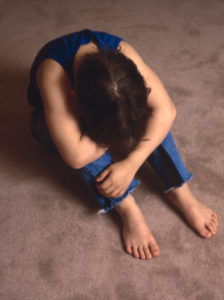Feeling Depressed? What are the Signs of Depression?
Signs of depression seem obvious at first, right? – you feel low, or down; lack energy and motivation, and also ‘don’t care.’ But are these actual signs of depression or just reactions to life not going your way? How do you know whether you are just feeling depressed, or are actually clinically depressed?
Feeling depressed is something that comes and goes – perhaps several times in a short period if you are going through a rough patch such as feeling a lack of purpose and or control in your life. But having depression is a more pervasive and long lasting experience that can last for months and/or years, affecting your sense of self-efficacy, autonomy, purpose and self-empowerment. Depression involves having to navigate the wish to function as a player in your own right, and the need to seem worthwhile by getting care and support from loved ones. Signs of depression are often expressions of unmet needs, essential for you to feel important enough to keep going.
Signs of depression may vary in quality depending on whether it’s long standing from childhood (Dysthymia) or hits later on in either a mild, moderate or severe fashion.
So, let’s look at the actual signs of depression, how they develop and their utility value.
Signs of Depression – origins and purpose
-
Withdrawal- retreat from an unresponsive world
Signs of depression are both physical, physiological and emotional. Signs of depression can vary from person to person and often depend on coping strategies that you may have used in the earliest part of your life to protect you from the lack of response and attunement to your needs! Surprised! I bet you are.
Think of a baby who longs for eye contact and a smile – to feel held in the secure arms of their care giver. The care giver is preoccupied and feeds the baby while scrolling a smart phone. The baby doesn’t feel seen or safe. When this experience recurs, the baby tries to wriggle, or cry, bite or beat it’s fists at the care giver. But all the care giver does is show annoyance and put the baby down. Baby feels the annoyance like a jolt – a shock that the person baby depends on is upset, not available and angry with baby for being needy.
After a ton of unsuccessful attempts to engage the care taker, baby retreats into a world where it shuts off, tries to take care of itself, and stops showing it’s longing for mutual interaction and vitality. In other words, the baby is depressed. Withdrawal becomes the only way to survive – and that’s the coping strategy that gets wired in. It’s the primary sign of depression – a withdrawal from the world that feels cold and unresponsive. Withdrawal is followed by numbness that shields the baby from the profound sense of terror, having to take care of itself alone and that baby can’t do it.
Signs of depression like withdrawal serve a purpose
Constance a 30-year-old artisan ceramic potter, was the youngest of two children in her family, taking care of a mother often bedridden with a chronic illness. After her older sister (the mother’s favorite) left home to get on with her life, Constance felt duty bound to take care of her mother, who had been abandoned by her husband when the kids were young. Constance had never felt loved or wanted by her mother. She had no contact with her father, and sister had long since left her to it, rarely coming over or offering support.
As an infant Constance was a nuisance to her mother who was already stressed with martial difficulties and a demanding young son. Baby Constance was not seen, nurtured or emotionally cared for right from the start. She developed a shell where she would withdraw into the background so she didn’t stress out her mother. The outside of the shell was the mask of ‘helper’ – the only way she could be safe and accepted into the lives of her mother and brother. But her most basic need for recognition as a loved and wanted child went unmet.
No one saw the signs of depression that Constance showed – her withdrawal, her poor appearance, and her flat tone. For Constance, being withdrawn and sickly was the only way she could get out of playing her caretaking role. It was the only time her mother worried that if Constance was not okay, she, the mother would be in jeopardy. Every now and again Constance would peek out from her withdrawal and go through the motions. The withdrawal helped her damp down feelings of helplessness and despair. Withdrawal, the most prominent sign of depression put Constance ‘on hold.’ She didn’t have to feel her rage at her mother or her longing to be loved and encouraged to have a life. Her life’s potential wasn’t valued by her mother, and Constance didn’t value it either – until she came to therapy in a terrible state, after she picked at her skin and peeled it raw!
Signs of depression – origins and purpose
-
Change in Eating Patterns – overeating becomes an anesthetic
The primary sign of depression, withdrawal, is often accompanied by a change in eating habits. As a child Constance raided the cookie and candy jars because meals were scarce. When meals were available they were often inedible because her mother didn’t have Constance in mind when she fed her favorite child. Constance learned to wait for the leftovers from the meals and stuff that into her mouth. She learned that she wasn’t worth feeding or cooking things that she liked. She had to stuff herself when there was something available – so overeating became a coping mechanism – together with withdrawal, adding to the signs of depression.
During her teenage years which was hard enough in itself- what with body image issues, managing puberty and rejection from her mother and sister, junk food and drink was the only solace she had at her disposal. As an adult, trapped in the same situation she hoarded whatever food she could find in her room and after taking care of her mother’s needs, she’d withdraw and stuff herself until she was numb, sleepy and anesthetized from the torture of being an unloved servant hoping to be seen as an attractive and meaningful person. The food was her lullaby, the arms that held her until she surrendered to sleep and oblivion for a while.
Signs of Depression – origins and purpose
-
Apathy – abdication of routine self-care, lack of interest in anything, and lethargy
As a baby who was left to take care of herself by restricting her needs so as not to arouse anger in the care taker, Constance faced a bleak landscape, where nothing sparked an interest. There was no point in exerting effort to get attention, food, or change of garments. ‘If mom isn’t interested and enjoying me then I must be bad. Maybe I stink, make too much noise, burden an already burdened care taker. I must be unlovable and not wanted. So why bother trying to eat, stay clean or find something interesting in the world out there to give me a purpose in life?’
These intense emotional experiences weren’t conscious, but Constance felt them deeply. The pain of rejection and debasement lived in her body – by changing the neurochemical balance associated with depression. So the roots to the signs of depression that showed up as lethargy and apathy are directly connected to her early infancy and a lack of nurturing.
Constance wore old baggy clothes, neglected her hair, teeth and acne. While she made sure her mother was bathed and put in clean clothes and given freshly made food, Constance was blind to her hygiene. If she was going to be the unattractive unloved child, then she was going to make herself look that way too. It was easier and more tolerable to synch with her mother’s view of her than to feel the tension of feeling attractive herself, while her mother saw her differently.
Signs of depression like apathy and lethargy serve a purpose
A lack of energy and listlessness among Constance’s signs of depression helped her stop the constant rejection and favoritism toward her sister from hurting it. Why would she put herself in a position where she could be burned and stabbed over and over again? Instead of a slow painful death by a thousand swords of negligence and devaluation, better to put herself in a coffin where she was as ‘dead’ as she needed to be – pretend death makes the attacker walk away.
Signs of Depression – Origins and purpose
-
Sleep disruption – too much or not enough sleep
As a baby it wasn’t safe for Constance to sleep. Would her mother still be there when she awoke? Would her mother have died because baby was too much to handle? Would mother have run away with her older sister or found someone else more stimulating? Would she be noticed if she woke up? Would she be changed and fed, bathed or cuddled? Staying awake and crying in a cranky tone was a way of making sure her mother paid her some attention now and again – giving her some security that she still had a mother. Constance had insomnia for long periods of time, to keep her vigilant – to make sure that there was a care giver there so baby Constance could survive.
But baby Constance couldn’t keep up the vigilance. Her little body needed rest and her fragile mind, insecure about surviving would just wipe her out. She’d sleep for hours and lose contact with mother.
As a toddler she’d have bouts of insomnia and crying for days. Her mother was annoyed and passed her off to her elder sister who had no intention of soothing little Constance. They had no clue about Constance’s desperate attempts to be appropriately cared – easing the immense burden of taking care of herself with no idea how to do so. She was given drops of alcohol to quieten her down when mother wanted her to stop her crankiness and sleep. But when little Constance was depleted and had to let her body take over with long periods of sleep – she was not welcomed back or missed. So the insomnia and hypersomnia became a wired in way of managing the fear of loss of connection – a sure fire sign of depression.
In early adulthood Constance used food and alcohol (having had a taste of it in infancy) to tune out her wishes to date guys, to have girlfriend groups and/or a social life where she could be seen as attractive and desirable. Over eating and alcohol put her to sleep for long periods of time, but as the effects wore off, she ended up being awake for hours feeling guilty, ashamed and frantically trying to compensate by being overactive doing chores – setting the adrenaline thermostat way up!
Signs of depression such as insomnia or hypersomnia serve a purpose
As an adult, sleeping for long periods gave her a legitimate way to take care of herself and her body rather than that of her mother’s. It was as if her body knew when to switch off so that she didn’t actually wear out and die. Similarly when she was agitated and unable to sleep for days, her psyche was pushing her to think about escaping from her self-imposed trap and take herself seriously. She was forced to feel the agitation and heaviness of anger that she prayed would be relieved by sleep, but that would only come when she used sleep disturbance and the other signs of depression to go to therapy.
Agitated movements can also be a sign of depression. When Constance began picking at her skin to ‘feel’ herself after successfully numbing and withdrawing, that’s when she was ripe for therapy. She was into the phase of self-destruction that scared her. As Freud said, “depression is anger turned inwards.”
The life-line offered in therapy helped her deal with family-of-origin fears, insecurity and dependency issues.
It wasn’t easy. She missed appointments due to her sleep issues. Sometimes she felt too ‘gross’ to leave the house. Other times she would sit in the therapist’s office in her withdrawn shell. But over a long time and frequent sessions, Constance found her way out of the trap and produced superb ceramic pieces. They say depressed people are creative and it was so in her case.
Copyright, Jeanette Raymond, Ph.D. 2021
You may also like:
Stress Eating, Being Overweight, and Depression
Spouses With Depression Have a History of Childhood Trauma and Abuse





